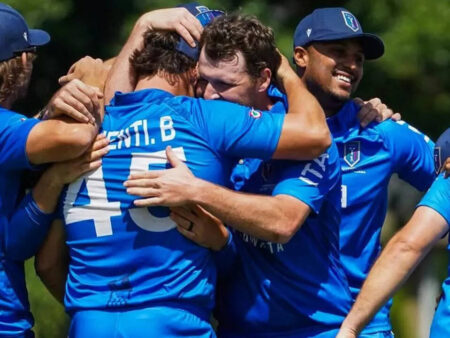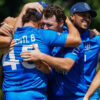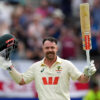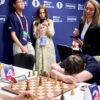The South African cricket team embraced an 18-hour stopover in Dubai between matches in Pakistan during the Champions Trophy. They utilized this brief interlude to relax, walk around, and enjoy a good meal as they navigated the tournament schedule between the group stage and their semi-final clash against New Zealand.
Along with Australia, South Africa was one of the teams that briefly departed Pakistan after their final group game. This was a precautionary measure in case they were scheduled for the semi-final against India in Dubai. While Australia was indeed set for that Dubai semi-final, South Africa returned to Pakistan, viewing the quick flight turnaround as a routine aspect of the tournament.
Heinrich Klaasen, speaking from Lahore, acknowledged the demanding travel schedule. “We were aware of the high possibility of these back-and-forth flights,” he mentioned. “It’s not physically ideal, but we managed to get out, stretch our legs, and have a decent steak. We knew this was a possibility due to the scheduling, and unfortunately, we were one of the teams affected.”
South Africa departed Karachi on Sunday morning following their victory against England, which secured their semi-final spot. They returned to Pakistan on Monday at 11 am, slightly later than New Zealand, who had left earlier after their match against India on Sunday evening. Klaasen believes this slight difference in travel time might give South Africa a marginal advantage in rest, especially since they didn’t have to leave Pakistan during the group stage, unlike some other teams.
“We haven’t had excessive travel in this competition,” Klaasen added. “This 18-hour period was quite hectic. New Zealand played a match and then had to travel just six hours later. We, at least, had a bit of downtime to recover before returning. I think our team might be slightly fresher than theirs, but it’s part of professional sport. You have to accept it, recover effectively, and focus on performing.”
Some South African players, including Marco Jansen, spent part of their Dubai downtime playing night golf. While teams in Pakistan have the option to play golf outside the hotels, South Africa has mostly stayed within their hotels due to security concerns. Dubai offered a different environment, allowing for more freedom. Several team members visited a shopping mall, and Klaasen confirmed that only a few support staff members watched the India versus New Zealand match.
While the Dubai conditions might not directly benefit South Africa unless they face India in the final, Klaasen highlighted the contrast in playing conditions. “Pakistan pitches are generally good for batting, making it tougher for bowlers. Dubai wickets tend to be slower, but you still need to play quality cricket.”
Klaasen emphasized the broader challenge: “Regardless of the venue, you need to overcome two strong teams to win. Whether it’s New Zealand and then potentially India or Australia, we must play excellent cricket to lift the trophy.”
Having reached their third consecutive ICC event knockout stage, South Africa feels they have consistently played well over the past two years. They are motivated to secure a major trophy, building on their semi-final victory at the previous T20 World Cup. Many players from that squad are also part of the current Champions Trophy team, aiming to go even further.
“There’s a bit less pressure this time because we have gained more experience in semi-finals. We are playing good cricket,” Klaasen stated. “Since 2018, we’ve consistently played remarkably well. We’ve faced some unfortunate moments and close games that didn’t go our way, but our overall performance has been strong. We are now seeing the rewards of this consistency. The team is showing more composure in crucial moments. Hopefully, we can reach another final. We have the experience now, and the key players need to step up on Wednesday.”
Despite pre-tournament concerns about their form after a home series loss to Pakistan, coach Rob Walter’s belief in his first-choice players has been vindicated. Klaasen explained that in non-ICC events, South Africa would continue to experiment with players, even at the cost of immediate results. This strategy aims to develop a broader player pool to ensure the strongest team is ready when it truly counts.
“The public needs to understand that post-ICC events, we use bilateral series to explore our options, give opportunities to players so they are prepared to step in when needed,” he said. “You can’t expect every young player to perform instantly and win every match.”
“Over the past few years, we’ve intentionally expanded our player pool. This approach might lead to some losses in the short term. However, as long as our core team and first-choice players deliver when it’s most important, I don’t see it as a problem.”











